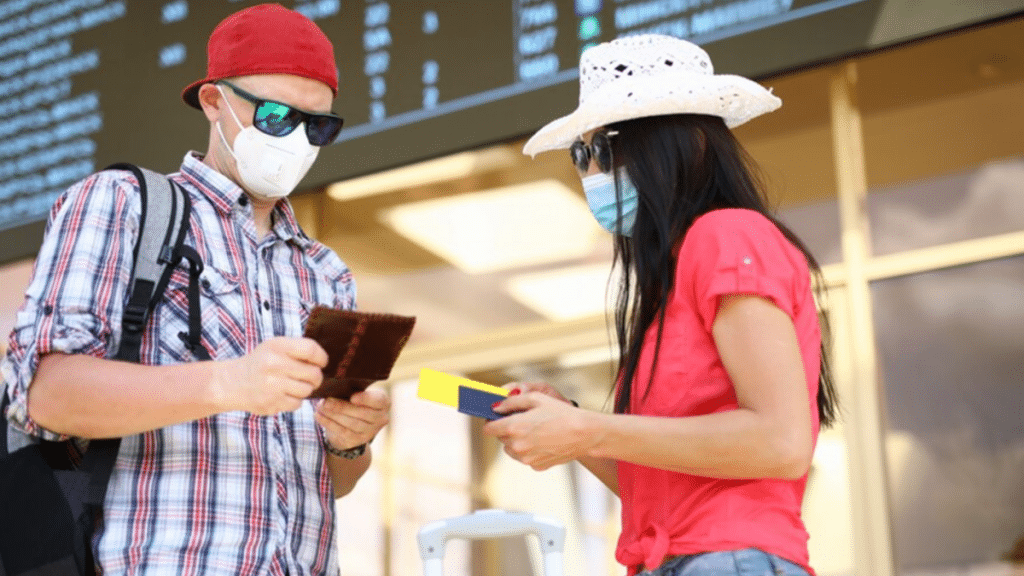Thailand is a lovely nation renowned for its breathtaking scenery, vibrant culture, and friendly people. However, like many popular tourist destinations, it is also home to certain scams targeting unsuspecting travelers. Understanding these scams and learning how to avoid them can ensure a safer and more enjoyable trip, whether you’re exploring the bustling streets of Bangkok or visiting iconic attractions like James Bond Island.
This guide will help you identify common scams in Thailand and provide practical tips to protect yourself during your journey.
The Tuk-Tuk Scam
What It Is
Tuk-tuks, Thailand’s iconic three-wheeled taxis, are a convenient and fun way to travel short distances. However, some drivers exploit tourists by offering rides at unusually low rates, only to take them to overpriced souvenir shops, tailors, or gem stores where they earn commissions.
How to Avoid It
- Agree on a fare before starting your ride.
- Use ride-hailing apps like Grab for transparent pricing.
- Resist the temptation to accept “free rides” or “special tours.”
The Fake Attraction Closure
What It Is
In this scam, a friendly local might approach you near a popular attraction and inform you that it’s closed for a special event or maintenance. They will then offer to guide you to alternative attractions or shops that pay them a commission.
How to Avoid It
- Double-check the status of attractions online or at official ticket counters.
- Politely decline unsolicited advice from strangers.
- Stick to your original plans and avoid detours suggested by others.
The Jet Ski Scam
What It Is
Scams involving jet ski rentals are prevalent in coastal towns like Pattaya and Phuket. After you return the jet ski, the operator may falsely claim damages and demand a large sum of money as compensation.
How to Avoid It
- Take photos or videos of the jet ski before renting it to document its condition.
- Rent from reputable businesses with good reviews.
- Always clarify the terms and fees before agreeing to rent.
The Taxi Meter Scam
What It Is
Some cab drivers offer exorbitant fares instead of using the meter. This is especially common at airports or tourist hotspots.
How to Avoid It
- Insist on using the meter or find another taxi if the driver refuses.
- Use official taxi counters at airports to book rides.
- Consider ride-hailing apps for fair pricing and reliability.
The Tour Package Scam
What It Is
Some travel agents or street vendors offer cheap tour packages that sound too good to be true. These packages often include subpar services, overcrowded transportation, and hidden fees. For example, a poorly organized day trip to James Bond Island could leave you frustrated instead of enchanted by the beauty of the destination.
How to Avoid It
- Use trustworthy organizations or internet resources with validated reviews to make tour reservations.
- Compare prices and inclusions before committing.
- Ask for detailed itineraries and confirm what is included in the package.
The Fake Police Officer Scam
What It Is
In this scam, an individual posing as a police officer stops tourists and accuses them of breaking a local law. They then demand an immediate fine, which they keep for themselves.
How to Avoid It
- Politely ask to see identification if approached by someone claiming to be a police officer.
- Demand that fines be paid at a police station instead of immediately.
- Stay calm and avoid confrontations.
The Gem Scam
What It Is
Gem scams are notorious in Thailand. A seemingly helpful stranger might claim a special sale on gemstones and direct you to a shop. The gems sold are often fake or grossly overpriced, leaving tourists with a worthless purchase.
How to Avoid It
- Avoid buying gemstones or jewelry from random shops, especially those strangers recommend.
- Stick to reputable jewelers with established reputations.
Overpriced Food and Drinks
What It Is
In some restaurants or bars, tourists are presented with inflated bills or charged for items they didn’t order.
How to Avoid It
- Check the menu prices before ordering.
- Ask for a detailed bill and verify the charges before paying.
- Visit restaurants with good reviews and clear pricing.
Fake Travel Agents
What It Is
Fake travel agents may sell bus, boat, or train tickets at inflated prices or issue invalid tickets, leaving tourists stranded.
How to Avoid It
- Purchase tickets directly from official counters or trusted online platforms.
- Avoid buying tickets from street vendors or unverified agents.
- Always ask for receipts and confirm the departure details.
The Bird Seed Scam
What It Is
This scam often occurs near temples or parks. A vendor hands you a bag of birdseed and encourages you to feed the birds, only to demand an exorbitant payment afterward.
How to Avoid It
- Politely decline unsolicited offers of birdseed or other items.
- Be cautious in crowded tourist areas where these scams are common.
Conclusion
Thailand offers an incredible array of experiences, from serene temples to iconic landmarks like James Bond Island. You can enjoy your trip without becoming a victim of common scams if you are aware and alert.
Whether it’s avoiding suspiciously cheap tours or securing authentic dining experiences at trusted establishments like https://www.biancorossorestaurant.com/, a little preparation goes a long way in ensuring a safe and enjoyable journey.
